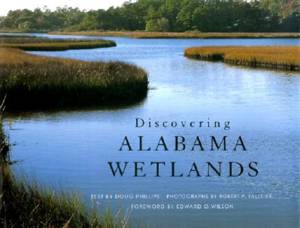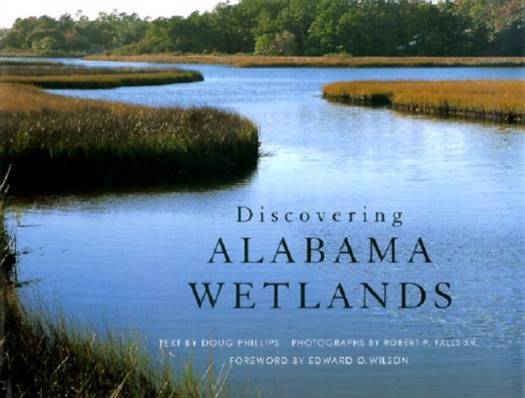
- Retrait gratuit dans votre magasin Club
- 7.000.000 titres dans notre catalogue
- Payer en toute sécurité
- Toujours un magasin près de chez vous
- Retrait gratuit dans votre magasin Club
- 7.000.000 titres dans notre catalogue
- Payer en toute sécurité
- Toujours un magasin près de chez vous
Récompenses
Description
This visually stunning portrait of Alabama's many diverse wetland habitats and their associated plants and animals is a passionate plea for their thoughtful care and protection.
Alabama could easily be called the "Aquatic State." It has an abundant supply of rain with countless streams, rivers, lakes, swamps, bogs, bottomlands, and bays that capture and channel this freshwater. An estimated 20 percent of the nation's total freshwater works its way through this small physical land area that ranges from the temperate foothills of the Appalachians to the semitropical Gulf coast. Alabama's varied watery realms have harbored and continue to sustain a rich diversity of plant and animal species virtually unequaled on the continent.
With Discovering Alabama Wetlands, ecologist-educator Doug Phillips and photographer Robert Falls celebrate these productive natural habitats. One hundred color photographs and a data-rich text illustrate the natural beauty and serenity of these special places while explaining their vital role in filtering toxins and sediment from groundwater, nourishing aquifers, and preventing flooding. Special focus is given to key areas--Little River Canyon National Preserve atop Lookout Mountain; Wheeler National Wildlife Refuge in the backwater of the Tennessee River, a major attraction for wintering waterfowl; the 100-mile-long Sipsey River and Swamp, slowly wending its way through the central part of the state; and the vast Mobile-Tensaw Delta, a remarkable inland estuary that has been designated a World Wildlife Biosphere. But the authors also explore lesser coastal estuaries, pitcher-plant bogs, limestone seeps, and prairie marshes as important mini-habitats supporting rare and sometimes endemic species.
This book sounds a strong warning for fragile, dwindling wetlands. Phillips explains that more than half of the original area of Alabama wetlands? million acres--has already been lost to two centuries of excessive timbering practices, agricultural drainage, suburban sprawl, and siltation. In reasoned, direct prose, he encourages readers to adopt a proactive attitude in protecting their nearby wetland areas, areas that will be essential to economic stability and the quality of life in Alabama for generations. With this beautifully illustrated album, Phillips and Falls offer their eloquent statement for wetlands protection.
Spécifications
Parties prenantes
- Auteur(s) :
- Editeur:
Contenu
- Nombre de pages :
- 128
- Langue:
- Anglais
Caractéristiques
- EAN:
- 9780817311711
- Date de parution :
- 21-08-02
- Format:
- Livre relié
- Format numérique:
- Genaaid
- Dimensions :
- 287 mm x 235 mm
- Poids :
- 1025 g









